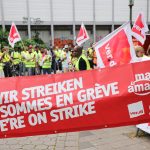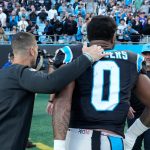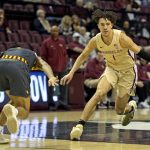A couple of people, both of whom I respect a great deal, asked me for a First Amendment analysis of the students’ trying to orate about the Israel-Palestine conflict at the class party at Berkeley Dean Erwin Chemerinsky’s home. Happy to oblige!
[1.] Some people have argued that the party was a public law school function, and thus not just a private event. I’m not sure that’s right—but I don’t think it matters.
Even if Berkeley law school put on a party for its students in a law school classroom, students still couldn’t try to hijack that for their own political orations. Rather, much government property is a “nonpublic forum”—a place where some members of the public are invited, but which is “‘… not by tradition or designation a forum for public communication'” (Minnesota Voters Alliance v. Mansky (2018), quoting a leading 1983 case).
In a nonpublic forum, the government acting as proprietor may impose restrictions so long as they are “reasonable and viewpoint-neutral.” (The restrictions need not be content-neutral, by the way, so long as they are viewpoint-neutral; and I expect that Dean Chemerinsky wouldn’t have tolerated this sort of political speechmaking at their dinner by anyone.)
This is because the government has the “power to preserve the property under its control for the use to which it is lawfully dedicated.” If the place is a room opened up to students for listening to a lecture, or if it’s open for dinner or lunch or a party, people have no First Amendment right to bring microphones and take the event over for their own political diatribes.
Indeed, I think the same would apply to ordinary campus cafeterias. People are free to go there, and to talk politics to their friends over lunch, or to wear T-shirts containing political slogans. But they don’t have a First Amendment right to get up and interfere with their classmates’ lunches by taking out microphones and making a speech.
[2.] Now it’s possible that people who hold events, even public law school events, at their own homes have extra power to control what is said and done in their own homes, beyond what I describe above. I know of no cases on point, perhaps because so few people try to turn a function at someone’s home (even one that is organized by a public organization) into an occasion for their own political demonstration.
In any case, though, I wouldn’t rely on that potential rationale, because I think the same would apply to a dinner that’s clearly on government property, too. The government generally can’t stop you from speaking on private property (real or virtual) when you have the property owner’s permission. It generally can’t stop you from speaking on government-owned traditional public forums, such as parks and sidewalks. Once it opens up a designated or limited public forum for speech (or certain kinds of speech), it must generally tolerate that speech. (Open outdoor spaces at universities may qualify as such “traditional public fora” or “designated public fora” or “limited public fora.”)
But when government buildings aren’t opened up for public speech, people don’t have a First Amendment to give speeches there. And that is likewise true for private homes, even when they have public law school parties hosted there (regardless of whether private homeowners have extra authority in such situations).
The post Students Don’t Have a Right to Use Public University Social Events for Their Own Political Orations, appeared first on Reason.com.






